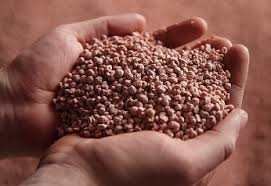
Dec . 10, 2024 11:14 Back to list
13 40 13 fertilizer npk
Understanding 13-40-13 NPK Fertilizer A Comprehensive Guide
Fertilizers play a crucial role in modern agriculture, enhancing soil fertility and improving crop yields. Among the various types of fertilizers available in the market, NPK fertilizers are one of the most widely used. NPK stands for Nitrogen (N), Phosphorus (P), and Potassium (K), the three essential nutrients required for healthy plant growth. The numbers preceding the abbreviation indicate the percentage of each nutrient in the fertilizer. In this article, we will delve into the specifics of 13-40-13 NPK fertilizer, its composition, benefits, and application methods.
Composition of 13-40-13 NPK Fertilizer
The formula 13-40-13 implies that this fertilizer contains 13% Nitrogen, 40% Phosphorus, and 13% Potassium. Each of these nutrients plays a distinct and vital role in plant development
1. Nitrogen (N) At 13%, nitrogen is crucial for plant growth as it is a primary component of chlorophyll, the substance that helps plants convert sunlight into energy. It promotes robust vegetative growth and ensures the development of green leaves.
2. Phosphorus (P) The standout feature of 13-40-13 fertilizer is its high phosphorus content at 40%. Phosphorus is essential for energy transfer within the plant, playing an integral role in photosynthesis and respiration. It also aids in root development, flowering, and fruiting, making this fertilizer particularly beneficial for blooming and fruit-bearing plants.
3. Potassium (K) With an equal percentage of 13%, potassium is vital for overall plant health. It helps regulate various physiological processes, including water uptake, enzyme activation, and photosynthesis. Potassium enhances the plant's ability to withstand stress conditions, such as drought or disease.
Benefits of 13-40-13 NPK Fertilizer
The unique nutritional profile of 13-40-13 NPK fertilizer makes it particularly beneficial in several agricultural scenarios
. Here are some notable benefits- Enhanced Root Development The high phosphorus content stimulates root growth, which is essential for establishing strong, healthy plants. This is especially important for young seedlings or transplants.
- Improved Bloom and Fruit Production The increased levels of phosphorus facilitate better flowering and fruit set, which is critical for crops such as tomatoes, peppers, and other fruiting vegetables.
13 40 13 fertilizer npk

- Balanced Nutrient Supply By providing a balanced supply of nitrogen and potassium alongside a substantial amount of phosphorus, this fertilizer supports overall plant health, reducing the risk of nutrient deficiencies.
- Soil Health Using NPK fertilizers like 13-40-13 can improve soil structure and fertility over time, leading to better water retention and aeration.
Application Methods
To maximize the effectiveness of 13-40-13 NPK fertilizer, proper application is essential. Here are some recommended methods
1. Soil Incorporation For garden beds and fields, incorporating the fertilizer into the top layer of soil before planting is beneficial. This ensures that nutrients are readily available to plant roots.
2. Side Dressing For growing crops, applying the fertilizer as a side dressing during the growing season can provide a timely nutrient boost, particularly at critical growth stages.
3. Dilution in Water For container plants or small gardens, dissolving the fertilizer in water and applying it through watering can help in providing a more immediate nutrient supply.
4. Follow Recommendations Always adhere to recommended application rates based on soil tests and the specific nutrient needs of the plants being cultivated.
Conclusion
In conclusion, 13-40-13 NPK fertilizer offers a well-rounded nutrient supply, with a particular emphasis on phosphorus to promote strong root development and abundant blooms. Whether you are a seasoned farmer or a home gardener, understanding the benefits and proper application techniques of this fertilizer can lead to healthier plants and improved yields. As with any agricultural chemical, it’s essential to use fertilizers judiciously to ensure sustainable farming practices and protect the environment.
-
10 10 10 Fertilizer Organic—Balanced NPK for All Plants
NewsJul.30,2025
-
Premium 10 10 10 Fertilizer Organic for Balanced Plant Growth
NewsJul.29,2025
-
Premium 10 10 10 Fertilizer Organic for Balanced Plant Growth
NewsJul.29,2025
-
Premium 10 10 10 Fertilizer Organic for Balanced Plant Growth
NewsJul.29,2025
-
50 Pound Bags of 13-13-13 Fertilizer for All Plants – Bulk & Organic Options
NewsJul.28,2025
-
High-Efficiency 15-30-15 Granular Fertilizer for Healthy Crops
NewsJul.28,2025
